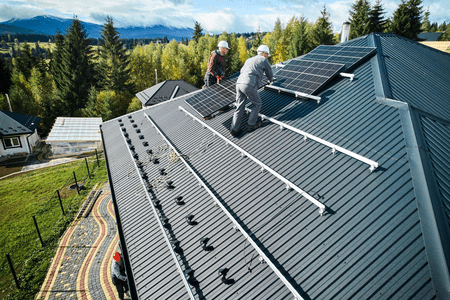
Why Should You Install Solar Panels in Today’s World?
In a world where climate change is becoming an increasingly pressing concern and renewable energy demand is on the rise, solar power has emerged as a game changer in our pursuit of sustainability. Imagine harnessing the power of the sun, an abundant and clean source of energy that not only decreases your carbon footprint but also saves you money over time. Installing solar panels has progressed from a niche practice to a mainstream option adopted by individuals, businesses, and even governments around the world. If you are still having second thoughts about installing solar panels, Solar Panels Wakefield is here to prove to you that doing so is not only a prudent decision but also an essential one for a brighter future.
Renewable energy is becoming increasingly important as concerns about climate change, environmental degradation, and energy security grow. As fossil fuel supplies deplete and greenhouse gas emissions rise, the need to convert to renewable energy sources becomes increasingly urgent. Renewable energy, which includes solar, wind, hydro, and geothermal power, provides a sustainable alternative by utilising abundant, clean, and limitless natural resources. This transition to renewables not only mitigates the negative effects of climate change, but it also promotes energy independence, economic growth, and clean energy innovation.
One of the technologies that produce solar energy to help the environment is solar panels. Solar panels offer many benefits that contribute to a more resilient, equitable, and sustainable future for future generations.
Environmental sustainability
When we consider environmental sustainability, one word that frequently comes to mind is balance. The delicate balance between humans and nature guarantees that our planet is vibrant and healthy for future generations. Solar panels provide a real solution to this balancing act, harnessing the sun’s power to generate clean electricity without depleting our limited resources.
Investing in solar energy is a partnership working toward a more sustainable future. Installing solar panels on rooftops or in big solar farms lessens our reliance on fossil fuels and greenhouse gas emissions, thereby tackling climate change one panel at a time. The progress toward solar energy affects not just environmental health but also economic stability.
As technology progresses, solar electricity becomes more efficient and affordable than ever before. Innovations in photovoltaic panel design are improving the amount of electricity each panel can generate while decreasing manufacturing costs.
With each installed solar panel, microscopic shifts toward rebalancing our relationship with nature occur, promoting healthier ecosystems worldwide and securing a livable world for future generations—a testament to the fact that small actions taken individually contribute significantly together to effectively addressing climate change challenges.
Financial savings
Financial savings are sometimes a big inducement for households considering the installation of solar panels. While the initial cost may appear considerable, long-term savings can be significant. As technology advances and solar panel efficiency improves, the return on investment becomes more appealing. Homeowners can lower or eliminate their electricity bills by producing their own renewable energy from the sun.
Some governments provide tax breaks and rebates for installing solar panels, making it even more financially attractive. By taking advantage of these financial benefits, homeowners can not only save money in the long run but also help to create a more sustainable future. When deciding whether to invest in solar energy, evaluate the possible savings as part of a larger financial strategy that favours long-term advantages over short-term costs.
Enhanced energy security during emergencies
One of the most compelling reasons to install solar panels today is to improve energy security during an emergency. Consider a scenario in which natural disasters or unexpected occurrences damage traditional electricity grids, leaving people in the dark. Solar panels become crucial assets in such situations, not only for individuals but for entire communities. They are self-sustaining units capable of generating and supplying electricity on their own, ensuring that key services and needs are provided uninterrupted.
The transition to renewable energy sources, such as solar power, is more than just an environmental statement; it is a strategic move to strengthen our resilience in the event of a crisis. By implementing solar technology, we are effectively building a decentralised energy network that is less vulnerable to failures caused by centralised grid disruptions. This novel strategy not only reduces the hazards associated with energy shortages during emergencies, but it also empowers individuals and communities by allowing them to actively participate in their own sustenance. As a result, installing solar panels today is an investment in ensuring a dependable energy future, one that will prepare us for tomorrow’s uncertainties.
Installing solar panels is more than simply a financial investment for your home or business; it is also a commitment to our planet’s health and sustainability. Individuals and companies may lower their carbon footprint, contribute to a cleaner environment, and save money on their electricity bills by utilising the sun’s abundant and renewable energy. Additionally, technological advancements and increased government incentives have made solar electricity more accessible than ever before. As we face the critical issues of climate change and limited natural resources, solar energy offers a realistic answer for creating a more sustainable and resilient environment. So consider the installation of a solar panel in your home or business, and contact Solar Panels Leeds.
